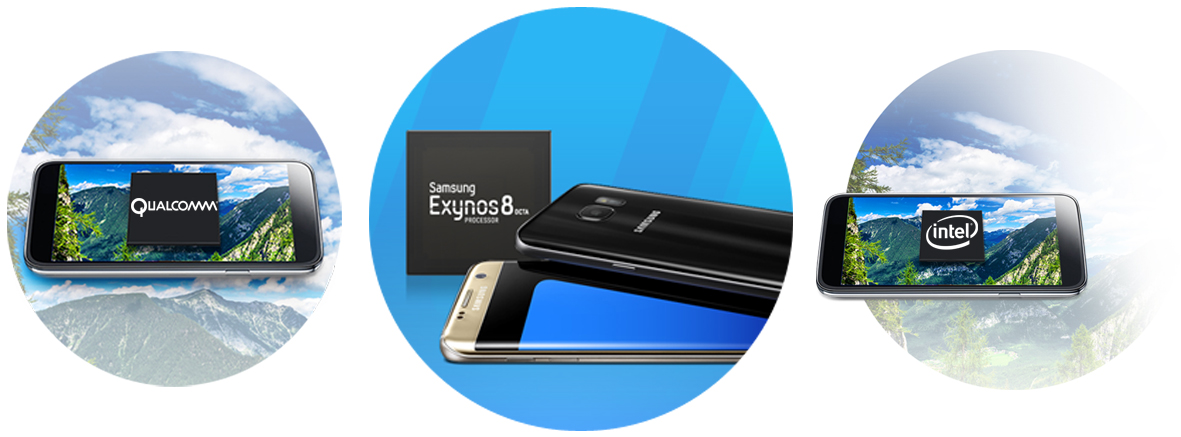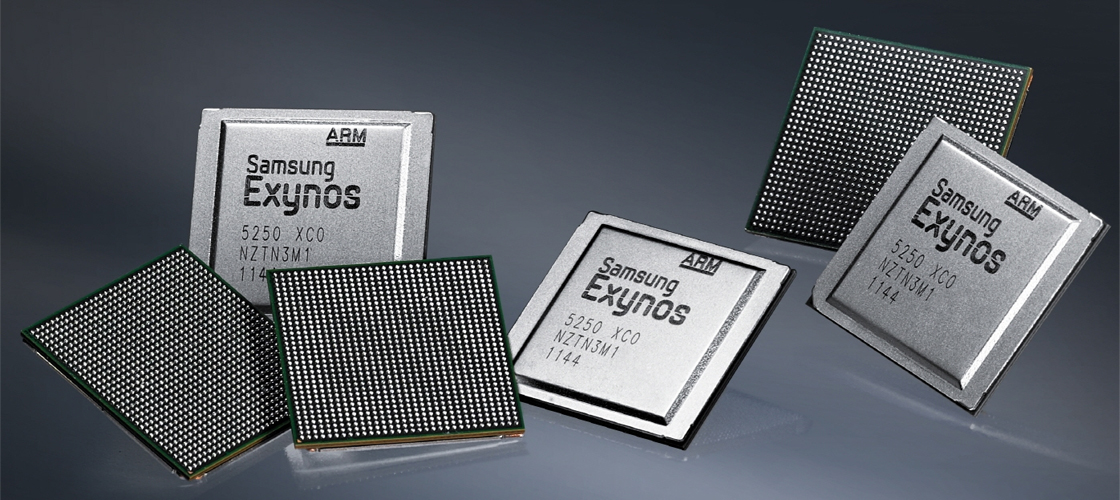Along with smartphones, Samsung is also supplying the backend components. It is being assumed that the company can replace Intel as a global chipset maker.
It is expected that Samsung will reach $15.1 billion in the chipset sales of the second quarter of the economical year 2017. This smartphone giant is also expected to override Intel in the annual chipset sales forecast- the expected values clock $63.6 billion as compared to the $60.5 billion amount of Intel.
Citing a report by Japan’s Nomura Securities, the boost in the demand for smartphone components such as DRAM and solid state drives has led to a price hike resulting in soaring sales.

Samsung and Intel
Nomura’s calculation is in terms of industry tracker IC insights which were quoted in May: “If the memory market prices continue to hold or increase through the second quarter and the balance of this year, Samsung could charge in the top spot and displace Intel, which has held No.1 ranking since 1993.”
Intel is the oldest in this field has held the number one spot for 24 years, ever since Pentium chips were unveiled in 1993.
Intel tasted continued success in making PC processors. But it was not that brilliant in cases of smartphones. Its smartphone chipsets lagged behind those by Samsung, namely Qualcomm, and Nvidia.
The smartphone chipsets are becoming as popular as those of CPU’s. In fact, the smartphones gain popularity because of the smartphone chipsets.
For the manufacturing of smartphone components, Samsung is investing a huge amount of $18.6 billion in South Korea to make smartphone components. This might make its lead unconquerable, at least for some time.

Smartphone Components Supplier
According to a report by PhoneArena Samsung no longer depends just on smartphone sales- more than half of its profits come from the smartphone component sales.
The company which is one of the largest smartphone manufacturers is slowly moving into the zone of supplying companies with smartphone components.
There is a huge possibility that it will seem like a conflict of interest since it has to compete with the same companies in the market. But Samsung has taken a different approach in this regard too. It has branched out into subsidiaries as Samsung Display and Samsung SDI.

According to the Korean Publication ETA news, Samsung Display is going to build the world’s largest OLED plant on manufacturing displays for Apple iPhones and other devices. The company has united with Qualcomm for the FinFET technology which is used in making 10-nm processors. Such Processors are much more powerful and performance-efficient than the current 14-nm processors.
The company is rumoured to be working on solid-state batteries which have the ability to massively cut down the risk of explosion.
Apple rules the smartphone market in terms of valuation but Samsung may soon become the giant of smartphone suppliers.




